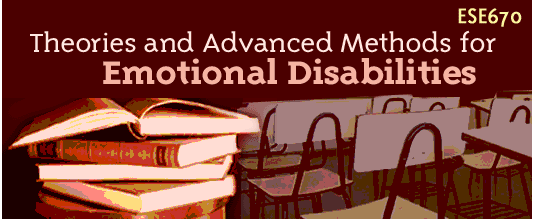
 |
|||||
| |
|
|
|
|
|
As part of this module, you will be doing a case study of a youngster. It is always easier to do a real child rather than trying to contrive the experience. To make the experience and use of time most practical, try this on a student in your current class. Even if you do not have access to a youngster, you can choose someone you know and go through the experience. Here is a good example of a social history. Review the material and decide which questions you will use to do your case study.
Directions:
Remember:
You are doing this because you want to know more about a youngster so you can gain second person perspective --- really care about him or her, really understand and gain insights about the family that will add to your level of compassion.
I. Descriptive data
Client identifying information (name, address, phone, age, ethnicity/race, etc.)
II. Referral information
A. Source of referral
B. Reason for contact
1. Challenges faced
2. Previous attempts to resolve
Personal Professional
3. Other professionals currently involved
III. Bio-psycho-social-spiritual assessment
A. Individual Functioning
1. Developmental phase
2. Current capabilities
a. Physical
b. Emotional
c. Psychological and philosophical
d. Social and interpersonal
e. Intellectual or cognitive
3. Areas of need
B. Cultural functioning **
1. Race/ethnicity
2. Primary language/other languages spoken
3. Elaboration of cultural identity
4. Cultural strengths
5. Experience of discrimination or oppression
C. Family information (names, ages, involvement with client)
1 - Spouse/partner
2. Parents
3. Siblings
4. Children
5. Extended family members
D. Family interaction
1. Extent of support
2. Family perspective on client
3. Client perspective on family
4. Family rituals
5. Important "family stories"
6. Relevant family issues
E. Natural support network
1. Significant relationships
2. Nature of involvement
F. Physical environment
1. Housing situation
2. Financial stability
3. Transportation resources
4. Neighborhood
G. Nodal events (situation and client's response)
1 - Deaths of significant others
2. Serious losses or traumas (violence, abuse, oppression, suicidal attempts, etc.
3. Significant life achievements
4. Recent ecological transitions
H. Education
1. Current level of functioning
2. Issues and needs
3. Significance of education to child and family
Adults
Teacher in charge
Friends
General student population
I. Family Employment
1. Current job both parents - type of work, length of employment (may include field placement)
2. Previous experience, including military
3. Skills, special training
4. Significance of work to family and how it impacts the child
J. Medical History of the child
1. Birth information
2. Illnesses/accidents/ surgery
3. Medications used
4. Family medical issues
5. Physical limitations
6. Diet
7. Alcohol and drug use (including periods of abstinence)
K. Spiritual
1. Religious involvement, including childhood religious training and practice
2. Family view of spirituality
L. Social activities
1. Interests
2. Clubs/organizations
3. Preferred recreation
4. Travels
IV. Initial Assessment
A. Family's perspective on current situation
B. Student's perspective on current situation (patterns of behavior,
connections between historical information and present situation,
relationship between child and environments)
C. Strengths of family system - personal, familial, social, spiritual, community, cultural
D. Motivation
E. Resources
1. Available resources
2. Resources needing development (include skills needing to develop, as well as external resources)
Adapted from Miley & O'Melia
Three response boxes will be needed here:
Sample questions
|
Permission form
|
Social history
|